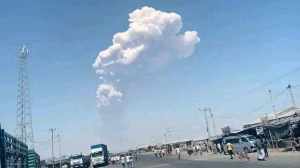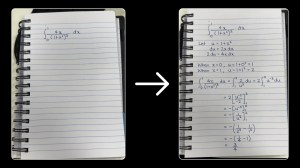Sanjoy’s murder spelled ULFA downslide
Social worker Sanjoy Ghose’s sensational murder case may have come to a close with life imprisonment to the two accused, looking back o...

Social worker Sanjoy Ghose’s sensational murder case may have come to a close with life imprisonment to the two accused, looking back one finds that the murder also triggered the downslide of the United Liberation Front of Asom (ULFA).
When Sanjoy Ghose, INLAKS scholar, founder of URMUL, Rajasthan, and CHARKHA, New Delhi, and the winner of Sanskriti Award, landed in Assam in April 1996 to launch a project in Majuli, the world’s largest river island in Brahmaputra, he definitely raised many eyebrows.
His friends and family thought he had gone crazy to choose an island infested with ULFA ultras. The ultra group, on its part, identified Sanjoy as an Indian Army spy in the guise of a social worker.
Sanjoy believed that the only cure to the ills of the North-East was the people themselves. ‘‘If youths could be helped to see an alternative path, a path of constructive work and development, much of the problems would end,’’ he wrote in his diary, which his wife later brought out as a book.
Thus, when he assessed the problems of Majuli, he found that while the government schemes failed to address the issues, the young people of the island could be put to constructive work through low-cost, community-managed schemes. His team spent the first three months living in people’s houses, all over the island, picking remote hamlets and people of all backgrounds — tribal farmers, Scheduled Caste fisher folk, school teachers — and soon came to be accepted as part of Majuli. Within months, hundreds came out to work with him.
He discovered that huge sums of money sanctioned by the government for development were going into the pockets of contractors and officials, as also to the ULFA. Majuli, for contractors and officials, was an unending source of funds that could be easily bungled on the plea that the Brahmaputra had washed away the schemes!
This also made Sanjoy and his team, enemies of contractors, who till then benefited from the annual ritual of flood control work. He also became a potential threat to the ULFA: Sanjoy’s popularity offered an unpleasant comparison to ULFA’s ‘‘achievements’’. For the ULFA, it was simpler to abduct Sanjoy than to introspect on their relationship with the people.
In doing so, the ULFA stressed their impotence. AVRAD-NE’s mouthpiece ‘‘Dweep-Alok’’, caused further sensation as it started focusing on cases of corruption. The first issue, for instance, uncovered a scam on Indira Awas Yojana in the Bongaon panchayat, where the local panchayat chief Parul Bora, had given the contract for building houses to her son.
The work was incomplete, and it featured, with photographs, in ‘‘Dweep-Alok’’. So irked were the vested interests that Sanjoy soon started receiving letters, initially anonymous and later on the ULFA letterhead, which termed him an ‘‘unwanted outsider’’ and an ‘‘Army spy’’ and asked him to quit. Sanjoy, however, decided to negotiate and explain to ‘‘the boys’’ that he was here in good spirit. But the ULFA refused to listen, and on July 4 1997, when he was returning from a village on his bicycle along with Chandan Doley, a local volunteer, a group of ULFA cadre whisked him away. That was the last time he was seen alive.
While the ULFA initially said it would free Ghose if AVARD-NE wound up its operations and apologised to the people for its ‘‘wrong-doings’’, they failed to release him even after the NGO complied with this request. A few days later, the ULFA issued a statement saying Ghose had died after falling from a hill when he tried to escape — a story that turned out to be false. They had indeed killed him on the first day itself and dumped his body into the Brahmaputra. This was later confirmed by the CBI.
Sanjoy’s killing also goes down as the beginning of the downslide for the ULFA. His abduction and murder caused widespread resentment in Assam. A resistance movement started by Umesh Rabha, a former BSF jawan, emboldened the common people. Police records say at least 20 ULFA cadre have been lynched over seven years.
Of the eleven persons named by the CBI in Sanjoy’s murder, only two have been arrested so far, while three have been killed in encounters with security forces. The ULFA’s support base has considerably weakened. Its general secretary Anup Chetia is serving a jail term in Dhaka, while vice-chairman Pradip Gogoi is lodged in the Guwahati district jail for over four years. The Bhutan government has served a quit notice to the outfit.






- 01
- 02
- 03
- 04
- 05

























